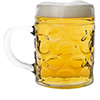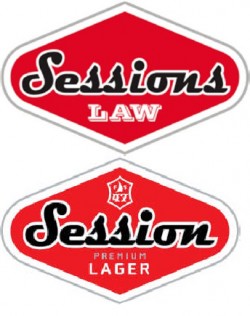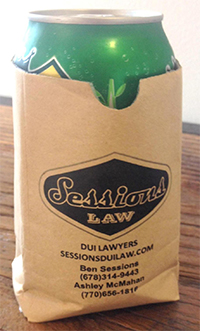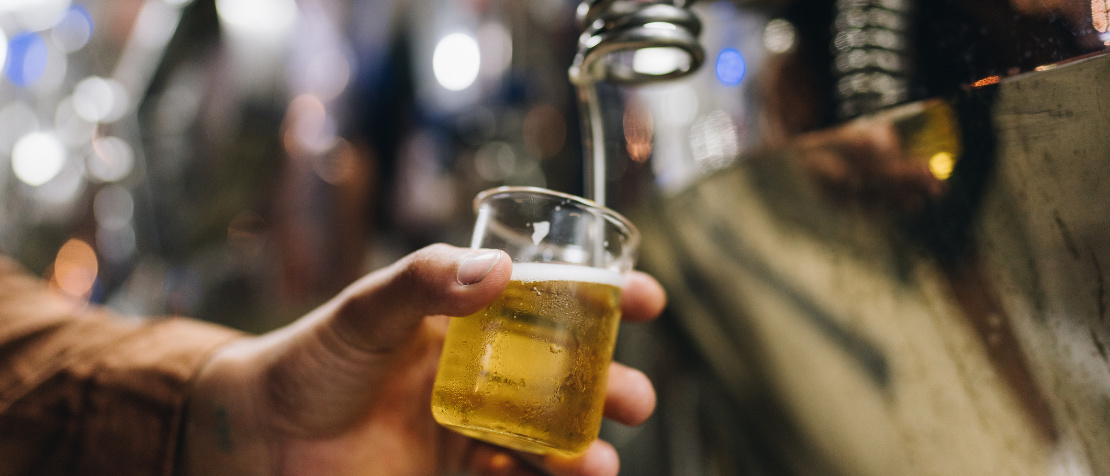July 18, 2014
 In an interesting case, an Oregon brewery, Full Sail Brewing Company, recently sued a Georgia law firm for trademark infringement. While breweries are frequently involved in trademark disputes, it is rare to see a brewery sue a law firm for trademark infringement.
In an interesting case, an Oregon brewery, Full Sail Brewing Company, recently sued a Georgia law firm for trademark infringement. While breweries are frequently involved in trademark disputes, it is rare to see a brewery sue a law firm for trademark infringement.
An Oregon brewery, Full Sail Brewing Company, recently sued a Georgia law firm for trademark infringement. Breweries are frequently involved in trademark disputes with other breweries, restaurants, bars, etc., but it is rare for a brewery to sue a law firm for trademark infringement. Full Sail Brewing Company has a registered trademark for its Session Lager. The Georgia law firm defendant, Sessions Law, began using a trademark that Full Sail believes infringes on its trademark rights. Full Sail’s trademark is the one on the bottom and the law firm’s logo is the one on top:

According to Full Sail’s complaint, Sessions Law marketed to beer drinkers by, among other things, printing advertising on paper bags distributed for the purposes of holding a can of beer:

Full Sail alleged that the law firm’s use of the Sessions Law logo created a malicious connection between Full Sail’s beer and DUI defense, the law firm’s main practice area. This was particularly troubling for Full Sail, which, as a brewery, does not want to be associated with driving under the influence. The law firm has since removed the Sessions Law logo from its website and the lawsuit was voluntarily dismissed without prejudice about eight days after it was filed, suggesting that the parties reached a settlement.
One question that this case raises, however, is whether legal services marketed to beer drinkers are sufficiently similar to the beer itself to find infringement. To oversimplify, in a trademark infringement analysis, courts look to a variety of factors in the analysis of whether one trademark is confusingly similar to another to determine whether there has been trademark infringement. One such factor is whether the goods and/or services at issue are sufficiently related.
For example, some courts have held that bar and restaurant services are sufficiently related to beer to render marks for these services and products confusingly similar, but other courts have gone the other way. Moreover, the U.S. Patent and Trademark Office is inconsistent on this issue. Some examining attorneys at the PTO have let nearly identical marks register for wine, on the one hand, and beer, on the other hand, because the products are different. Other examining attorneys have refused to register marks that are perhaps somewhat similar to registered marks when the registered mark is for spirits and the applied for mark is for bar services.
Given that the Full Sail Brewing dispute appears to have settled, we are not likely to get a written decision from the court on whether legal services directed to beer drinkers are so related to the beer itself that it weighs in favor of finding that the marks are confusingly similar. Settling is almost always preferential to continued litigation, but a written opinion from the court would surely have been interesting. Because not all factors in the “confusingly similar” analysis are necessarily given equal weight, however, and given the strong similarity of the marks at issue, the court may have been able to skirt the question of whether legal services and beer are related.
